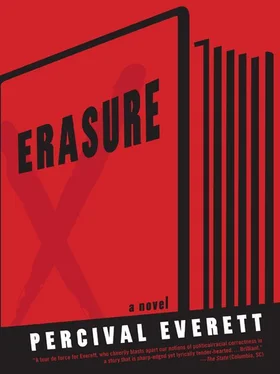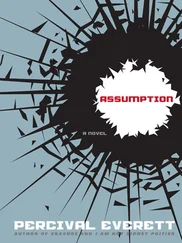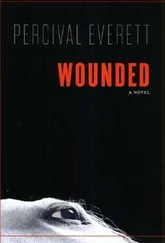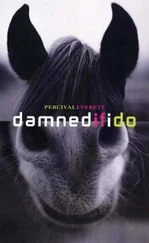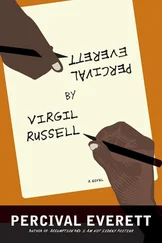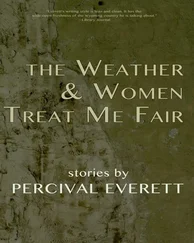“She’s like part of the family,” I said, trying to recover. “She’s been with us for years, my entire life.”
“She’s been with you,” he said, slightly (not-so-slightly) mocking. “What are you, rich or something?”
“No, we’re not rich.”
“I’m an electrician’s helper. What do you do?”
“I’m a novelist.” I read the blank expression on his face. “And a professor. Actually, I’m on leave right this year.”
“On leave. And they’re paying you?”
“Well, no.”
“So, you’re telling me you’re not working and it doesn’t matter. That makes you rich in my book. How many other servants your family got?”
“Only Lorraine.”
Leon laughed to himself and looked back at the television.
“So, what kind of wedding present you gonna give your servant?”
His question was both odd and forward, but it caused a flood of thoughts in me. What was I going to give Lorraine? What did I owe Lorraine? What did my family owe her? Had she saved for retirement? Had she ever filed her income taxes? “As a matter of fact,” I said to Leon. “I’m giving the bride ten thousand dollars.”
Leon looked at me, then at the game, then back at me. He got up and walked across the room to his wife where I am sure that he told her what I had just told him. The daughter then told the nieces and the sister-in-law, who by all appearances was already drunk, and there seemed to be a new air of joy and repose. I was left with a bad feeling, not because I saw the family Lorraine was marrying into as mercenary, not because I had just then decided on my gift, but because I truly didn’t understand how anyone could get so excited over a mere ten thousand dollars. I saw myself exactly as I had never wanted, but always did, awkward and set apart, however unfairly and incorrectly. I turned my attention to the screen and saw a ball sail over the left field fence. I considered that Leon would have no trouble with my having money, no matter how much a figment of his imagination it was, if I were that ballplayer. The problem was the one I had always had, that I was not a regular guy and I so much wanted to be. Can you spell bourgeois?
My mother stood near a large window and raised a glass of wine above her head. Everyone responded by raising their glasses. But I could see her eyes filling with the vacancy that frightened me so. I stood and walked toward her. She turned those empty orbs to me and hissed.

My grandfather was very bright, but was not notably funny. He realized this and was famous for the funniest line of our family history. He said, “My claim to having a sense of humor is a singular demonstration of such.” I was ten when he said it and even then the layers of logical play thrilled me. I remember my father near rolling. My grandfather was more playful than my father and had a softer hand with Bill. Bill took it hard when the old man died a month later. He was very old, well past eighty.
Father was actually tender that day and much of his tenderness was directed at my brother. He sat us down in his study, sat next to Bill on the sofa and put a hand on his knee. I think Bill and Lisa knew what was coming, but I surely didn’t. I watched my father’s face. “Children, your grandfather has passed away,” he said.
I remember hanging on the expression passed away. Perhaps I was simply trying to avoid the news. Lisa cried. Bill’s face became vacant, hollow and he fell against Father, his head on his shoulder. I would never see them so close again, without barriers, without tension. I didn’t know enough to cry, but I understood that Grandfather was dead.
At dinner that evening, Lorraine paused in the dining room and asked if Father would like her to say a prayer.
“Hell no,” he said. When Lorraine was gone, he looked at Mother and the rest of us. “My father loved these lines. ‘And the fisher with his lamp / And spear, about the low rocks damp / Crept, and stuck the fish who came / To worship the delusive flame: / Too happy, thy whose pleasure sought / Extinguishes all sense and thought / Of regret that pleasure cease/ Destroying life alone not peace.’”
Father cast an eye to the door through which Lorraine had exited. “I ask that grief not push us to the irrational belief in some god. We do not need to believe that Father has gone on to the good light. He told me often that he was not afraid of the dark. Neither am I. And neither are you.” His eyes seemed to find me.
I did not understand why my father chose that moment to affirm his atheism. Perhaps he felt his foundation shaking. Perhaps he was angry. Perhaps he was simply passing on to us what little he knew about life and death.
Mother, whose silence was impossible to miss throughout these opening minutes of the meal, cleared her throat and said, “This is not about you.”
To which Father replied, “Quite right.”
And we ate.

Mother snapped. “Who are these people?!” she shouted. “Lorraine, you little strumpet, how dare you let these — these hooligans in here.”
“Come, Mother,” I said. I tried to guide her away. “She’s sick,” I whispered to Maynard and the others.
“I’ve never trusted that Lorraine. Only after money, that girl.”
“See, I told you,” Maynard’s daughter said to the others.
“How dare you,” Lorraine said to the daughter. “You simpleton.”
“That simpleton is my wife,” Leon said.
“They’re all thugs,” Mother said. She twisted away from my grasp and stood on a foot stool. “All of you, out of my house!”
“Your house?” a niece said.
“I’m sorry,” I said.
Lorraine was crying now. I was encouraged by the sight of Maynard attempting to comfort her. I apologized again, but when I turned and tried to collect my mother, she bolted across the carpet and into the bathroom. I do not remember hearing a sound as loud as the clicking of the lock on that door.
I knocked. “Mother?”
“Who are you?”
“It’s me, Monksie.”
There was no response. I knocked again. “Mother?”
The minister took this opportunity to arrive, swinging open the door and saying, “Shall we begin the joyous event?”
“Mother?”
“I knew she was a golddigger.”
“Shut up, you witch.”
“That witch is my wife.”
“Everyone, please calm down,” from Maynard.
I could hear Mother pulling things from the cabinets and I became afraid. I put my shoulder to the door and broke the lock. Mother had her pantyhose halfway down and screamed when she saw me. I pulled up her clothes and carried her crying out of the bathroom and away from the house. At the car, she began to come around.
“Are we late?” she asked.
“Actually, it’s over. It was a nice service,” I said.

Somehow Lorraine and Maynard ended up married. Lorraine came by to collect her things that night on her way to a honeymoon in Atlantic City and didn’t say a word to Mother. She barely spoke to me, saying only, “This is the thanks I get.”
I handed her an envelope and said, “I’m sorry Lorraine. I hope this helps.”
Maynard offered me a weak smile, an understanding smile.

I called Bill and told him that Mother would be committed the next day. He said he would fly in. I told him not to bother, that he wasn’t needed. He said he would come anyway.
Читать дальше
